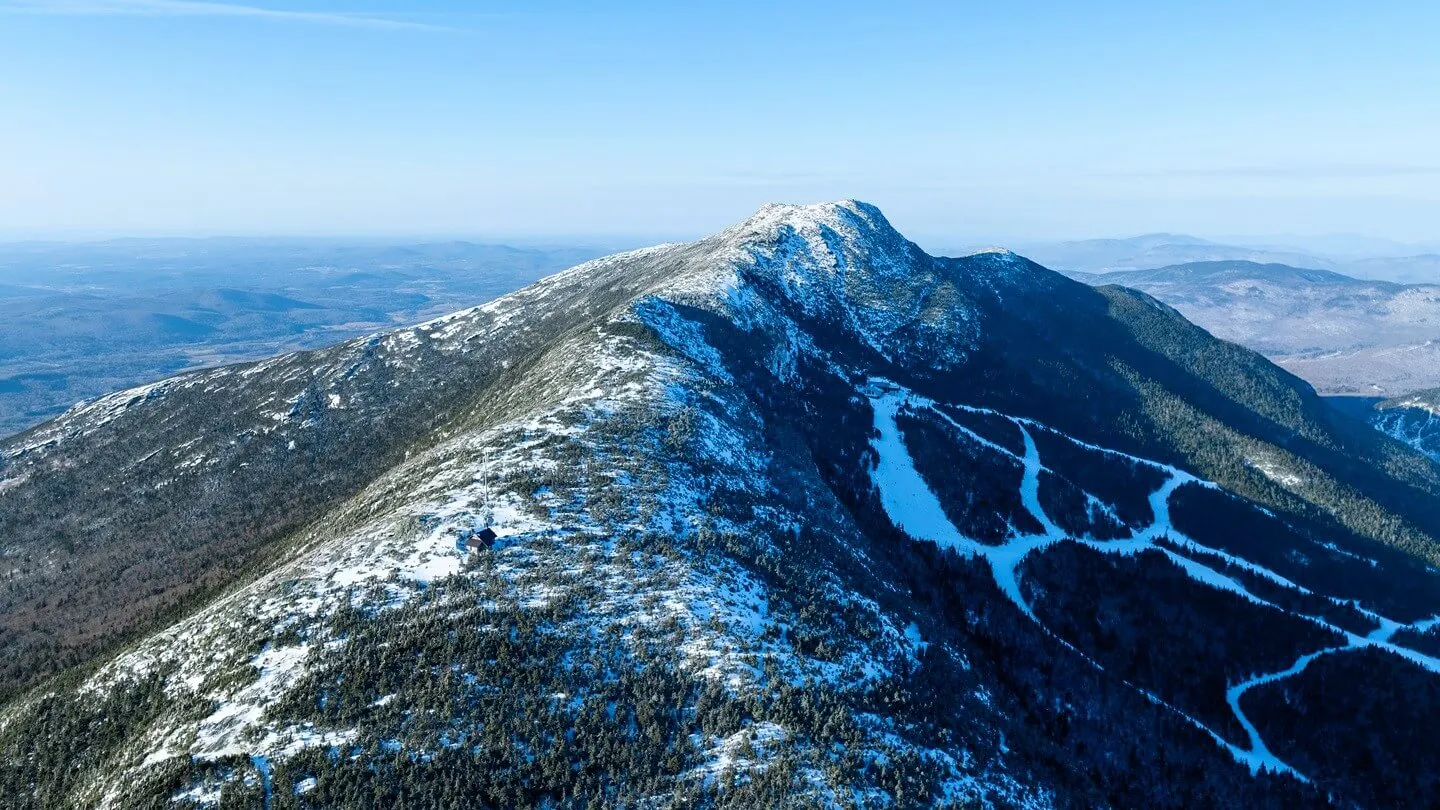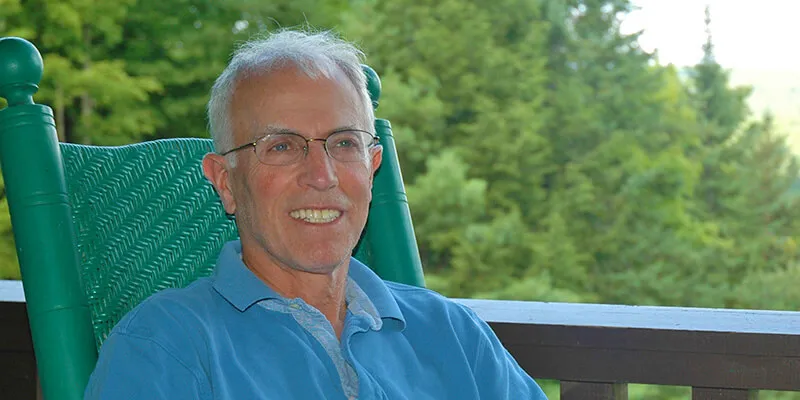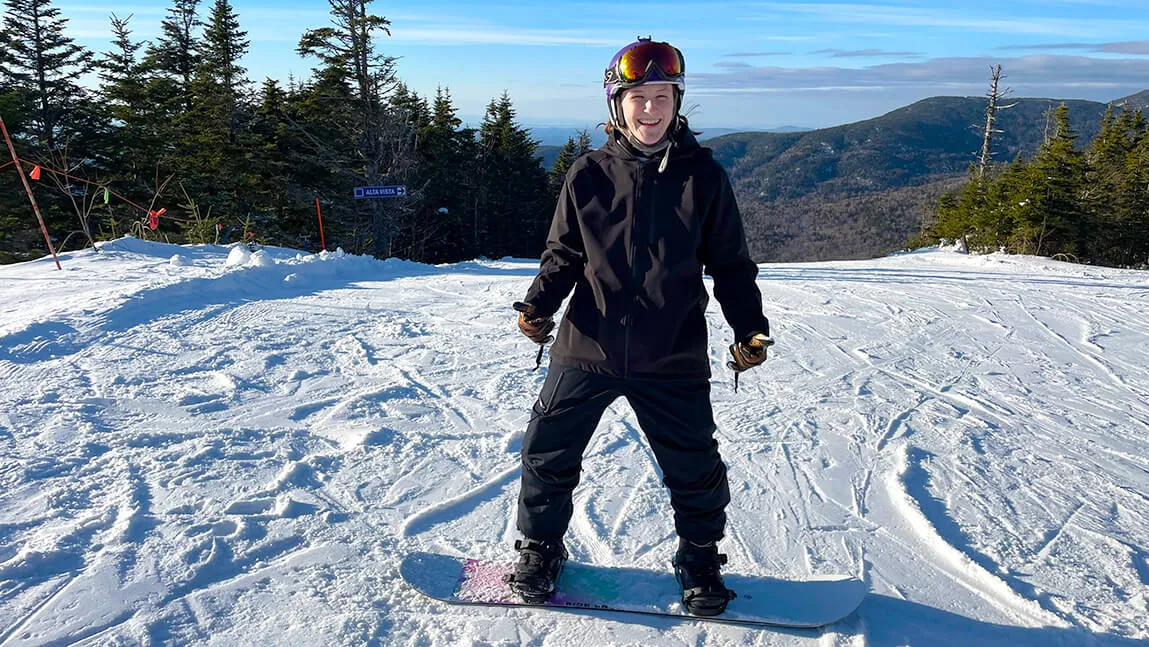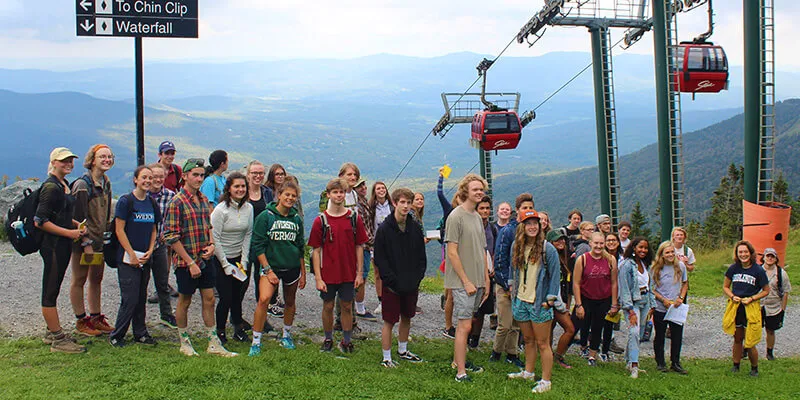For 26 years, Senior Lecturer Dave Kaufman has spent the spring semester teaching University of Vermont (UVM) students the ins and outs of Vermont’s ski industry. The most popular skiing and riding destination in the eastern U.S., Vermont had more than 4 million visitors to mountains across the state last winter. Those skiers and riders account for a large portion of Vermont’s $4 billion of tourism revenue.
The Ski Area Management course is a cornerstone of the Parks, Recreation, and Tourism (PRT) program in the Rubenstein School of Environment and Natural Resources at UVM. Started by the late Al Gilbert, the course ties together outdoor recreation and education, state and federal land use, and hospitality. Students start the course with a week-long immersive learning experience in early January at Stowe Mountain Resort on Vermont’s tallest peak, Mount Mansfield. They continue their learning through the spring semester with a combination of classroom time and additional mountain visits.
The week in Stowe gives students direct access to the management team handling all aspects of resort operations. Each day is filled with presentations from a wide range of departments including human resources, food and beverage, ski school, snowmaking, lift maintenance, and ski patrol. The students also spend hands-on time with equipment and get to enjoy some time on the slopes as well.
“They get a complete picture of what it takes to operate a world-class ski resort, and they hear directly from the folks that are on the ground each day,” says Kaufman. “We’ve been partnering with Stowe since the late 1990s and have developed a really fantastic week to kick-off the semester for our students.”
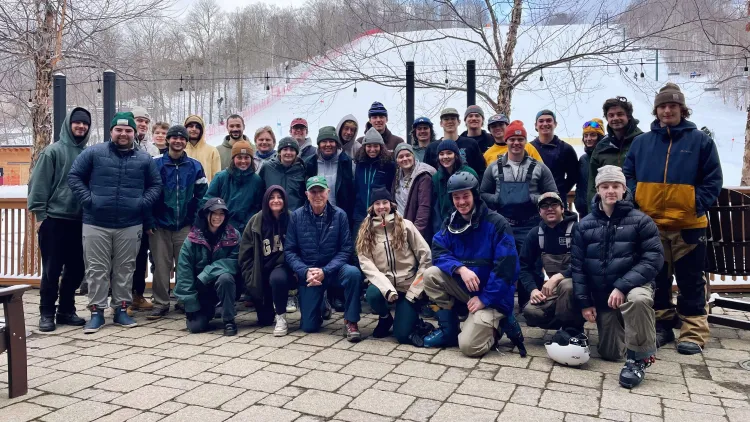
“The Stowe experience was both educational and immersive; seeing the behind-the-scenes left me with a greater understanding of what goes on at my favorite ski areas; even now, when I find myself skiing, I am able to point out to my friends the nuance and technical operations of the ski resort,” said Ellie Hunter, a junior in the PRT program in the Rubenstein School. “I've gained an appreciation for all the work that goes into creating a place like Stowe, the maintenance, environmental considerations, and all the people who contribute to making skiing and snowboarding an amazing experience."
Resilience and adaptability are key themes in the Ski Area Management course. As climate change brings warmer winters and increasingly unpredictable weather patterns, ski areas are having to adapt to remain profitable. Advancements in snowmaking technology have allowed Vermont ski areas to keep impressive amounts of terrain open even in low snow years.
“We rely heavily on snowmaking, approximately 80 percent of our terrain in the state is covered by snowmaking,” explains Kaufman. “As a result, we’re more prepared than some of the resorts out West that are just starting to depend on these technologies as they experience the impacts of climate change.”
While 2025 has been a record high snow year, other environmental factors also come into play. The week the students spent at Stowe was one of the windiest the resort had experienced, causing them to place nearly all lifts on wind hold for two days in a row. Unfortunately, this meant less skiing and riding time for the students, however they did get to experience the dynamic conditions that impact resort operations daily.
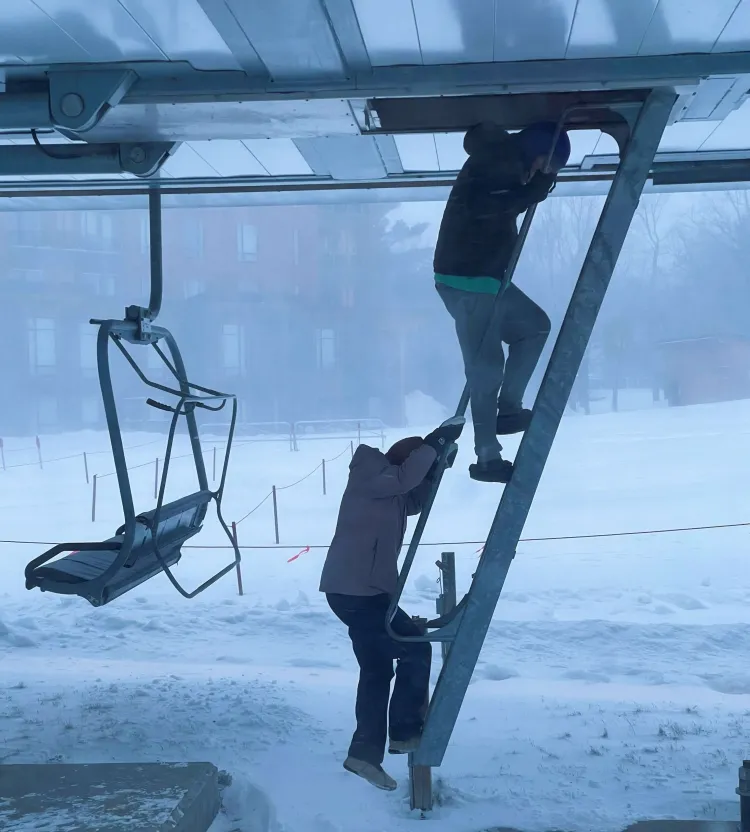
Ski Area Management students also visit resorts of varying sizes and with different business models. During their time at Stowe and Sugarbush Resort they are exposed to operations under Vail Resorts and Alterra Mountain Company respectively. The students also spend time at Bolton Valley Resort, an independent and family-owned company, just 30 minutes from campus. PRT alumni Chris Stimpson and Courtney Crowley from Wachusett Mountain in Massachusetts, join the class to share their experiences managing a family-owned resort and providing a place where many people are exposed to snow sports for the first time.
Relationships are Core to Student Success
The Ski Area Management course has evolved over the past quarter century, benefiting greatly from Kaufman’s countless relationships in the ski industry. Upon graduating with a Bachelor of Science in Business Administration from Ithaca College, Kaufman got a job working at Mount Snow in southern Vermont and quickly advanced into upper management. He went on to serve in the state legislature, work for the Vermont Department of Tourism and Marketing, and start his own tourism business. During his career he received multiple awards for his dedication to Vermont’s tourism industry.
“We're enhancing an important relationship between UVM and the ski industry in Vermont,” said Kaufman. “Our students aren’t just customers at our area ski resorts, they are the future workforce, and they have a lot of potential to keep evolving the industry.”
Kaufman’s decades of firsthand experience and relationship building created a strong foundation for the Ski Area Management course and PRT program to become a launch pad for UVM students entering the working world. A steady stream of PRT alumni have found success in Vermont’s ski industry and at resorts across the country.
“I met Dave when he was my internship advisor, and he has kept in touch over the many years since,” said Molly Mahar ‘87, President of Ski Vermont. “His passion for recreation and tourism was evident then and has been a constant as he has helped thousands of students understand how their coursework relates to the way businesses and organizations deliver great recreation and hospitality experiences. His approach links learning with the real world, helping students to envision their future careers.”
Mahar is just one of many notable alums working in Vermont. Others include John Hammond ‘93, President and Chief Operating Officer of Sugarbush Resort, Eric DesLauriers ‘87, Director of Mountain Operations at Bolton Valley Resort, and Stefanie Berlow ‘02, Ski Patrol Supervisor at Stowe Mountain Resort.
“This program has a solid track record of placing graduates directly into jobs right out of school,” said Kaufman. “Seeing my students find work in the sports they love and the places they love is the most rewarding part of the job.”
After more than 25 years of teaching the Ski Area Management course, Kaufman will retire in May 2025. The course will continue with instruction by Rubenstein School Professor Jon Erickson, who has been co-teaching with Kaufman this semester and has a strong ski industry background.
“Not to worry, I’ll still be around to give the industry history lesson,” reassured Kaufman.
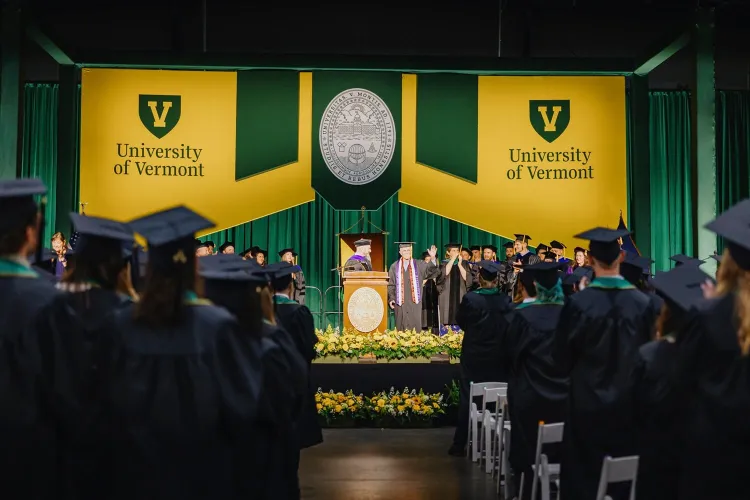
In May 2025 Kaufman received the distinction of Professor Emeritus from UVM, he was celebrated at the Rubenstein School commencement ceremony.
